- Home
- Jack Higgins
Hell Is Always Today
Hell Is Always Today Read online
PRAISE FOR THE THRILLERS OF
JACK HIGGINS
DARK JUSTICE
“High-speed narration.”
—Publishers Weekly
BAD COMPANY
“Higgins writes with spare velocity, racing through a complex plot…[and] has no equal in the realm of ex-Nazis wreaking havoc…. Higgins maintains the suspense and even manages a series of nasty surprises along the way.”
—St. Louis Post-Dispatch
“Starts off at light speed and quickly goes into warp drive, never easing up on the throttle so that readers never quite catch their breath.”
—Stonnington Leader (Australia)
MIDNIGHT RUNNER
“The fun comes from the wisecracking band of dangerous but bighearted secret soldiers Higgins wheels out to save the world—and his galloping Hollywood-ready pace.”
—People
“Swift and coursing with dark passion…as credible and steel-hearted as Higgins’s best.”
—Publishers Weekly
EDGE OF DANGER
“This is Higgins near the top of his game…another winner.”
—Publishers Weekly
“His 32nd triumphant exercise in keeping readers hugely entertained.”
—Los Angeles Times
“The action is nonstop.”
—Minneapolis Star Tribune
DAY OF RECKONING
“The action is sleek and intensely absorbing, but the supreme pleasure is in those Higgins celebrates—tarnished warriors who value honor over life and who get the job done no matter what the cost.”
—Publishers Weekly
THE WHITE HOUSE CONNECTION
“The White House Connection has one heckuva heroine…[who] begins a one-woman assassination spree that will keep you turning the pages.”
—Larry King, USA Today
“Masterful…a satisfying, suspense-filled book.”
—Roanoke Times & World News
“[A] page-turning thriller.”
—The Indianapolis Star
THE PRESIDENT’S DAUGHTER
“High-tension action and harrowing twists—Higgins at his best.”
—Midwest Book Review
“A tight story with plenty of action.”
—Chattanooga Free Press
NIGHT JUDGEMENT AT SINOS
“This is one you won’t put down.”
—The New York Times
DRINK WITH THE DEVIL
“A most intoxicating thriller.”
—The Associated Press
“It is Dillon’s likeability and the author’s adroitness in giving his character the room he needs that make Higgins’s novels so readable.”
—The Washington Times
YEAR OF THE TIGER
“Higgins spins as mean a tale as Ludlum, Forsythe, or any of them.”
—Philadelphia Daily News
ANGEL OF DEATH
“Pulsing excitement…Higgins makes the pages fly.”
—New York Daily News
“The action never stops.”
—The San Francisco Examiner
EYE OF THE STORM
Also published as Midnight Man
“Heart-stopping…spectacular and surprising.”
—Abilene Reporter-News
“Razor-edged…will give you an adrenaline high. It’s a winner.”
—Tulsa World
ON DANGEROUS GROUND
“A whirlwind of action, with a hero who can out-Bond old James. It’s told in the author’s best style, with never a pause for breath.”
—The New York Times Book Review
SHEBA
“When it comes to thriller writers, one name stands well above the crowd—Jack Higgins.”
—The Associated Press
THUNDER POINT
“Dramatic…authentic…one of the author’s best.”
—The New York Times
“A rollicking adventure that twists and turns.”
—The San Diego Union-Tribune
GRAVEYARD SHIFT
“One-hundred-percent-proof adventure.”
—The New York Times
BROUGHT IN DEAD
“Action-packed, colourful and written by a natural storyteller.”
—Sunday Mail (London)
Titles by Jack Higgins
HELL IS ALWAYS TODAY
BAD COMPANY
MIDNIGHT RUNNER
THE GRAVEYARD SHIFT
EDGE OF DANGER
DAY OF RECKONING
THE KEYS OF HELL
THE WHITE HOUSE CONNECTION
IN THE HOUR BEFORE MIDNIGHT
EAST OF DESOLATION
THE PRESIDENT’S DAUGHTER
PAY THE DEVIL
FLIGHT OF EAGLES
YEAR OF THE TIGER
DRINK WITH THE DEVIL
NIGHT JUDGEMENT AT SINOS
ANGEL OF DEATH
SHEBA
ON DANGEROUS GROUND
THUNDER POINT
EYE OF THE STORM (also published as MIDNIGHT MAN)
THE EAGLE HAS FLOWN
COLD HARBOUR
MEMORIES OF A DANCE-HALL ROMEO
A SEASON IN HELL
NIGHT OF THE FOX
CONFESSIONAL
EXOCET
TOUCH THE DEVIL
LUCIANO’S LUCK
SOLO
DAY OF JUDGMENT
STORM WARNING
THE LAST PLACE GOD MADE
A PRAYER FOR THE DYING
THE EAGLE HAS LANDED
THE RUN TO MORNING
DILLINGER
TO CATCH A KING
THE VALHALLA EXCHANGE
THE KHUFRA RUN
A GAME FOR HEROES
THE WRATH OF GOD
Hell Is Always Today
Jack Higgins
BERKLEY BOOKS, NEW YORK
THE BERKLEY PUBLISHING GROUP
Published by the Penguin Group
Penguin Group (USA) Inc.
375 Hudson Street, New York, New York 10014, USA
Penguin Group (Canada), 10 Alcorn Avenue, Toronto, Ontario M4V 3B2, Canada
(a division of Pearson Penguin Canada Inc.)
Penguin Books Ltd., 80 Strand, London WC2R 0RL, England
Penguin Group Ireland, 25 St. Stephen’s Green, Dublin 2, Ireland (a division of Penguin Books Ltd.)
Penguin Group (Australia), 250 Camberwell Road, Camberwell, Victoria 3124, Australia
(a division of Pearson Australia Group Pty. Ltd.)
Penguin Books India Pvt. Ltd., 11 Community Centre, Panchsheel Park, New Delhi—110 017, India
Penguin Group (NZ), Cnr. Airborne and Rosedale Roads, Albany, Auckland 1310, New Zealand
(a division of Pearson New Zealand Ltd.)
Penguin Books (South Africa) (Pty.) Ltd., 24 Sturdee Avenue, Rosebank, Johannesburg 2196, South Africa
Penguin Books Ltd., Registered Offices: 80 Strand, London WC2R 0RL, England
This is a work of fiction. Names, characters, places, and incidents either are the product of the author’s imagination or are used fictitiously, and any resemblance to actual persons, living or dead, business establishments, events, or locales is entirely coincidental.
HELL IS ALWAYS TODAY
A Berkley Book / published by arrangement with the author
Copyright © 1968 by Harry Patterson.
All rights reserved.
No part of this book may be reproduced, scanned, or distributed in any printed or electronic form without permission. Please do not participate in or encourage piracy of copyrighted materials in violation of the author’s rights. Purchase only authorized editions.
For information, address: The Berkley Publishing Group,
; a division of Penguin Group (USA) Inc.,
375 Hudson Street, New York, New York 10014.
ISBN: 0-7865-7958-7
BERKLEY®
Berkley Books are published by The Berkley Publishing Group,
a division of Penguin Group (USA) Inc.,
375 Hudson Street, New York, New York 10014.
BERKLEY is a registered trademark of Penguin Group (USA) Inc.
The “B” design is a trademark belonging to Penguin Group (USA) Inc.
Contents
Prologue
Chapter 1
Chapter 2
Chapter 3
Chapter 4
Chapter 5
Chapter 6
Chapter 7
Chapter 8
Chapter 9
Chapter 10
Chapter 11
Chapter 12
Chapter 13
Chapter 14
Chapter 15
Chapter 16
Chapter 17
Chapter 18
Chapter 19
Chapter 20
Chapter 21
Prologue
The police car turned at the end of the street and pulled into the kerb beside the lamp. The driver kept the motor running, and grinned at his passenger.
“Rather you than me on a night like this, but I was forgetting. You love your work, don’t you?”
Police Constable Henry Joseph Dwyer’s reply was unprintable and he stood at the edge of the pavement, a strangely melancholy figure in the helmet and cape, listening to the sound of the car fade into the night. Rain fell steadily, drifting down through the yellow glow of the street lamp in a silver spray and he turned morosely and walked towards the end of the street.
It was just after ten and the night stretched before him, cold and damp. The city was lonely and for special reasons at that time, rather frightening even for an old hand like Joe Dwyer. Still, no point in worrying about that. Another ten months and he’d be out of it, but his hand still moved inside his cape to touch the small two-way radio in his breast pocket, the lifeline that could bring help when needed within a matter of minutes.
He paused on the corner and looked across the square towards the oasis of light that was the coffee stall on the other side. No harm in starting off with something warm inside him and he needed some cigarettes.
There was only one customer, a large, heavily built man in an old trenchcoat and rain hat who was talking to Sam Harkness, the owner. As Dwyer approached, the man turned, calling goodnight over his shoulder and plunged into the rain head down so that he and the policeman collided.
“Steady on there,” Dwyer began and then recognised him. “Oh, it’s you, Mr. Faulkner. Nasty night, sir.”
Faulkner grinned. “You can say that again. I only came out for some cigarettes. Hope they’re paying you double time tonight.”
“That’ll be the day, sir.”
Faulkner walked away and Dwyer approached the stall. “He’s in a hurry, isn’t he?”
Harkness filled a mug with tea from the urn, spooned sugar into it and pushed it across. “Wouldn’t you be if you was on your way home to a warm bed on a night like this? Probably got some young bird lying there in her underwear waiting for him. They’re all the same these artists.”
Dwyer grinned. “You’re only jealous. Let’s have twenty of the usual. Must have something to get me through the night. How’s business?”
Harkness passed the cigarettes across and changed the ten-shilling note that Dwyer gave him. “Lucky if I make petrol money.”
“I’m not surprised. You won’t get many people out on a night like this.”
Harkness nodded. “It wouldn’t be so bad if I still had the Toms, but they’re all working from their flats at the moment with some muscle minding the door if they’ve got any sense. All frightened off by this Rainlover geezer.”
Dwyer lit a cigarette and cupped it inside his left hand. “He doesn’t worry you?”
Harkness shrugged. “He isn’t after the likes of me, that’s for certain, though how any woman in her right mind can go out at the moment on a night when it’s raining beats me.” He picked up the evening paper. “Look at this poor bitch he got in the park last night. Peggy Nolan. She’s been on the game round here for years. Nice little Irish woman. Fifty if she was a day. Never harmed anyone in her life.” He put the paper down angrily. “What about you blokes, anyway? When are you going to do something?”
The voice of the public, worried, frightened and looking for a scapegoat. Dwyer nipped his cigarette and slipped it back into the packet. “We’ll get him, Sam. He’ll over-reach himself. These nut-cases always do.”
Which didn’t sound very convincing even to himself and Harkness laughed harshly. “And how many more women are going to die before that happens, tell me that?”
His words echoed back to him flatly on the night air as Dwyer moved away into the night. Harkness watched him go, listening to the footsteps fade and then there was only the silence and beyond the pool of light, the darkness seemed to move in towards him. He swallowed hard, fighting back the fear that rose inside, switched on the radio and lit a cigarette.
Joe Dwyer moved through the night at a measured pace, the only sound the echo of his own step between the tall Victorian terraces that pressed in on either side. Occasionally he paused to flash his lamp into a doorway and once he checked the side door of a house which was by day the offices of a grocery wholesaler.
These things he did efficiently because he was a good policeman, but more as a reflex action than anything else. He was cold and the rain trickled down his neck soaking into his shirt and he still had seven hours to go, but he was also feeling rather depressed, mainly because of Harkness. The man was frightened of course, but who wasn’t? The trouble was that people saw too much television. They were conditioned to expect their murders to be neatly solved in fifty-two minutes plus advertising time.
He flashed his lamp into the entry called Dob Court a few yards from the end of the street hardly bothering to pause, then froze. The beam rested on a black leather boot, travelled across stockinged legs, skirt rucked up wantonly, and came to rest on the face of a young woman. The head was turned sideways at an awkward angle in a puddle of water, eyes staring into eternity.
And he wasn’t afraid, that was the strange thing. He took a quick step forward, dropping to one knee and touched her face gently with the back of his hand. It was still warm, which could only mean one thing on a night like this….
He was unable to take his reasoning any further. There was the scrape of a foot on stone. As he started to rise, his helmet was knocked off and he was struck a violent blow on the back of the head. He cried out, falling across the body of the girl, and someone ran along the entry behind him and turned into the street.
He could feel blood, warm and sticky, mingling with the rain as it ran across his face and the darkness moved in on him. He fought it off, breathing deeply, his hand going inside his cape to the two-way radio in his breast pocket.
Even after he had made contact and knew that help was on its way, he held on to consciousness with all his strength, only letting go at the precise moment that the first police car turned the corner at the end of the street.
1
It had started to rain in the late evening, lightly at first, but increasing to a heavy, drenching downpour as darkness fell. A wind that, from the feel of it, came all the way from the North Sea, drove the rain before it across the roofs of the city to rattle against the enormous glass window that stood at one end of Bruno Faulkner’s studio.
The studio was a great barn of a room which took up the entire top floor of a five-storey Victorian wool merchant’s town house, now converted into flats. Inside a fire burned in a strangely mediaeval fireplace giving the only light, and on a dais against the window four great shapes, Faulkner’s latest commission, loomed menacingly.
There was a ring at the door bell and then another.
After a while, an
inner door beyond the fireplace opened and Faulkner appeared in shirt and pants, a little dishevelled for he had been sleeping. He switched on the light and paused by the fire for a moment, mouth widening in a yawn. He was a large, rather fleshy man of thirty whose face carried the habitually arrogant expression of the sort of creative artist who believes that he exists by a kind of divine right. As the bell sounded again he frowned petulantly, moved to the door and opened it.
“All right, all right, I can hear you.” He smiled suddenly. “Oh, it’s you, Jack.”
The elegant young man who leaned against the wall outside, a finger held firmly against the bell push, grinned. “What kept you?”
Faulkner turned and Jack Morgan followed him inside and closed the door. He was about Faulkner’s age, but looked younger and wore evening dress, a light overcoat with a velvet collar draped across his shoulders.
He examined Faulkner dispassionately as the other man helped himself to a cigarette from a silver box and lit it. “You look bloody awful, Bruno.”
“I love you too,” Faulkner said and crossed to the fire.
Morgan looked down at the telephone which stood on a small coffee table. The receiver was off the hook and he replaced it casually. “I thought so. I’ve been trying to get through for the past couple of hours.”
Faulkner shrugged. “I’ve been working for two days non-stop. When I finished I took the phone off the hook and went to bed. What did you want? Something important?”
“It’s Joanna’s birthday, or had you forgotten? She sent me to get you.”
“Oh, my God, I had—completely. No chance that I’ve missed the party I suppose?”
“I’m afraid not. It’s only eight o’clock.”
“Pity. I suppose she’s collected the usual bunch of squares.” He frowned suddenly. “I haven’t even got her a present.”
Morgan produced a slim leather case from one pocket and threw it across. “Pearl necklace…seventy-five quid. I got it at Humbert’s and told them to put it on your account.”

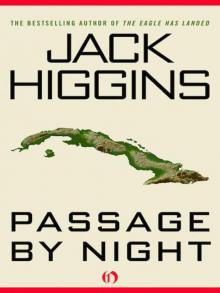 Passage by Night (v5)
Passage by Night (v5)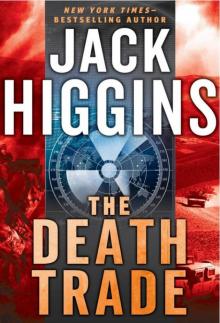 The Death Trade sd-20
The Death Trade sd-20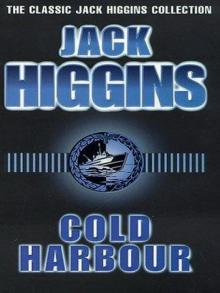 Cold Harbour
Cold Harbour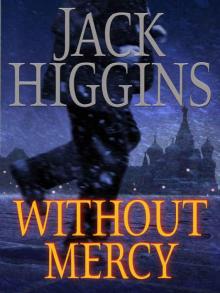 Without Mercy
Without Mercy Solo (Aka the Cretan Lover)(1980)
Solo (Aka the Cretan Lover)(1980) First Strike
First Strike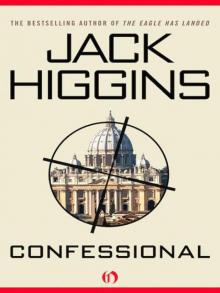 Confessional - Devlin 03 (v5)
Confessional - Devlin 03 (v5)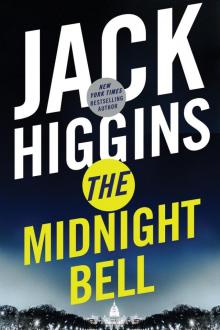 The Midnight Bell
The Midnight Bell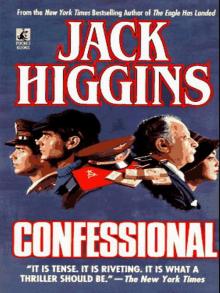 Confessional
Confessional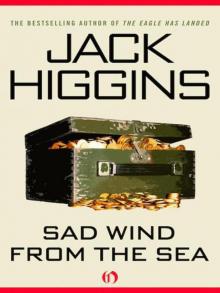 Sad Wind from the Sea (v5)
Sad Wind from the Sea (v5)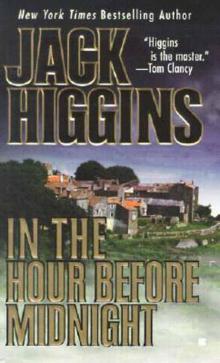 In The Hour Before Midnight aka The Sicilian Heritage
In The Hour Before Midnight aka The Sicilian Heritage Wrath of the Lion
Wrath of the Lion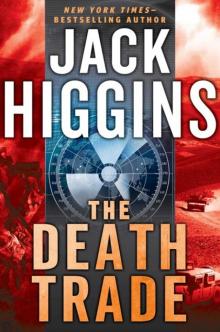 SDillon 20 - The Death Trade
SDillon 20 - The Death Trade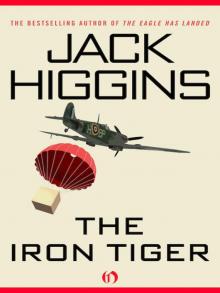 the Iron Tiger (1974)
the Iron Tiger (1974)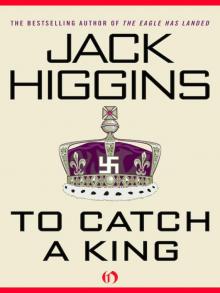 To Catch a King
To Catch a King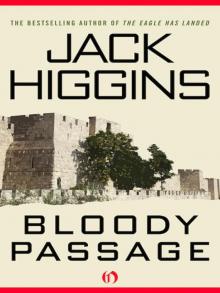 Bloody Passage (1999)
Bloody Passage (1999) Wrath of the Lion sd-8
Wrath of the Lion sd-8 Sharp Shot
Sharp Shot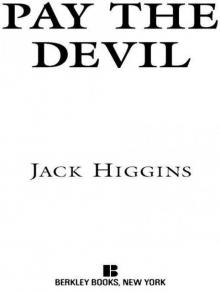 Pay the Devil (v5)
Pay the Devil (v5) A Devil Is Waiting
A Devil Is Waiting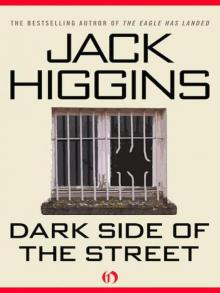 Dark Side of the Street - Simon Vaughn 01 (v5)
Dark Side of the Street - Simon Vaughn 01 (v5)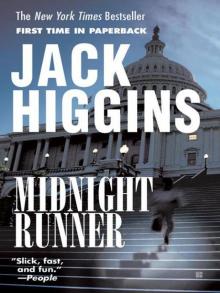 Midnight Runner - Sean Dillon 10
Midnight Runner - Sean Dillon 10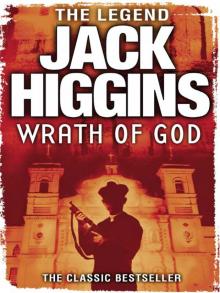 Wrath of God
Wrath of God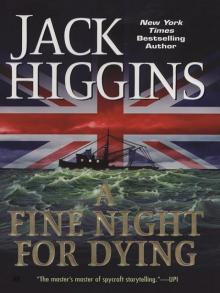 A Fine Night for Dying
A Fine Night for Dying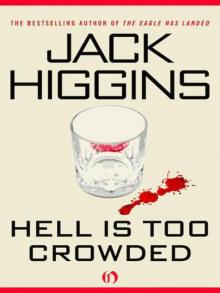 Hell Is Too Crowded v5)
Hell Is Too Crowded v5)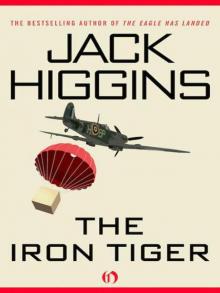 the Iron Tiger (v5)
the Iron Tiger (v5)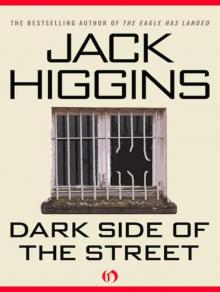 Dark Side of the Street pc-5
Dark Side of the Street pc-5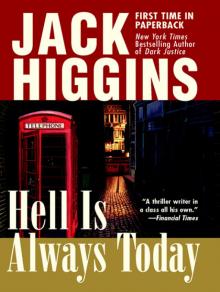 Hell Is Always Today
Hell Is Always Today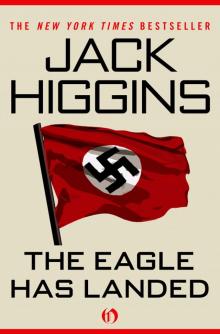 Eagle Has Landed
Eagle Has Landed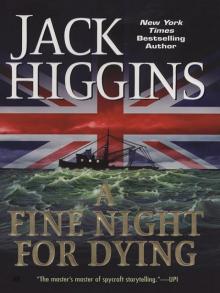 A Fine Night for Dying pc-6
A Fine Night for Dying pc-6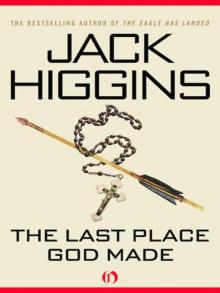 the Last Place God Made (v5)
the Last Place God Made (v5) the Valhalla Exchange (1976)
the Valhalla Exchange (1976)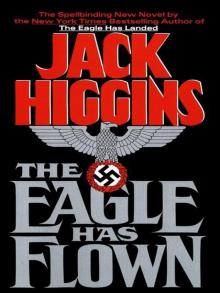 The Eagle Has Flown
The Eagle Has Flown Sure Fire
Sure Fire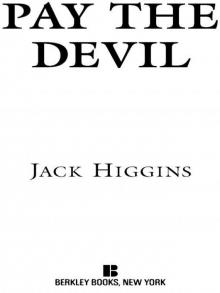 Pay the Devil (1999)
Pay the Devil (1999)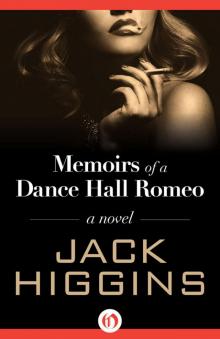 Memoirs of a Dance Hall Romeo
Memoirs of a Dance Hall Romeo![a Prayer for the Dying (1974)[1] Read online](http://i1.bookreadfree.com/i1/04/02/a_prayer_for_the_dying_19741_preview.jpg) a Prayer for the Dying (1974)[1]
a Prayer for the Dying (1974)[1]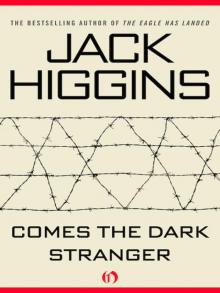 Comes the Dark Stranger
Comes the Dark Stranger Dark Side Of the Island (v5)
Dark Side Of the Island (v5)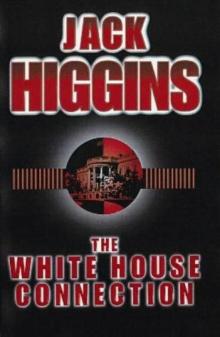 The White House Connection sd-7
The White House Connection sd-7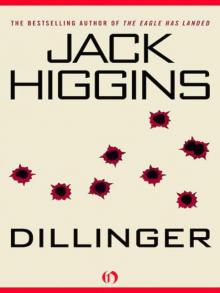 Dillinger (v5)
Dillinger (v5) Eye of the Storm
Eye of the Storm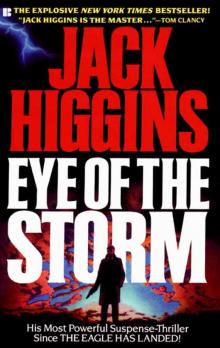 Eye Of The Storm aka Midnight Man
Eye Of The Storm aka Midnight Man A Darker Place
A Darker Place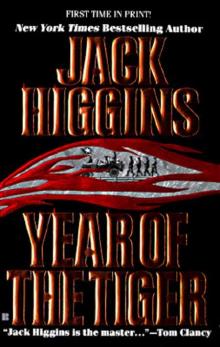 Year Of The Tiger
Year Of The Tiger Death Run
Death Run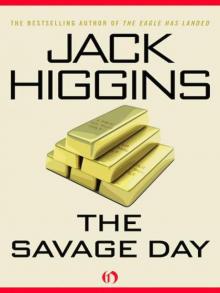 the Savage Day - Simon Vaughn 02 (v5)
the Savage Day - Simon Vaughn 02 (v5)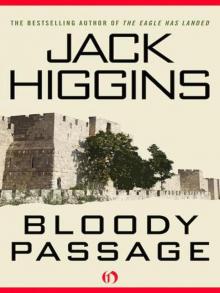 Bloody Passage (v5)
Bloody Passage (v5)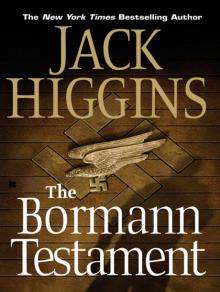 The Bormann Testament
The Bormann Testament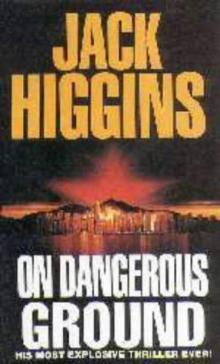 On dangerous ground sd-3
On dangerous ground sd-3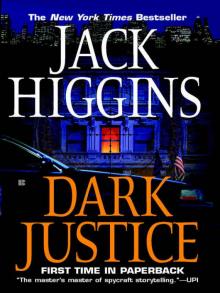 Dark Justice
Dark Justice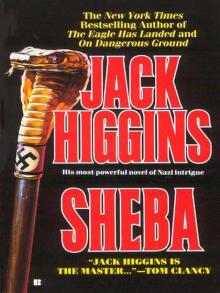 Sheba
Sheba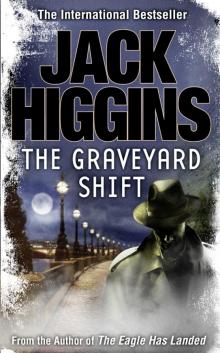 The Graveyard Shift
The Graveyard Shift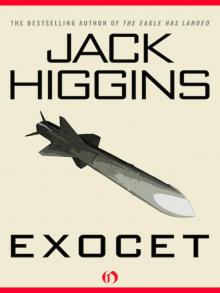 Exocet (1983)
Exocet (1983)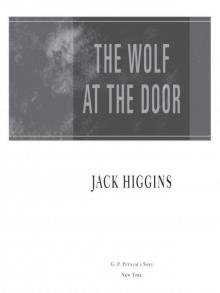 The Wolf at the Door
The Wolf at the Door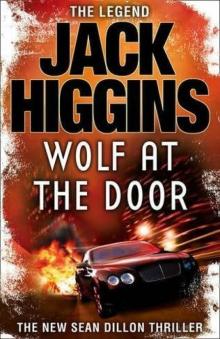 The wolf at the door sd-17
The wolf at the door sd-17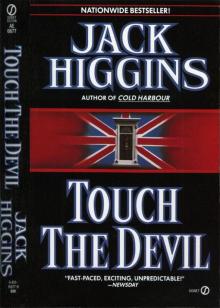 Touch The Devil
Touch The Devil The President’s Daughter
The President’s Daughter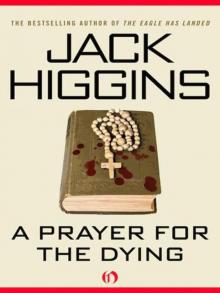 A Prayer for the Dying (v5)
A Prayer for the Dying (v5)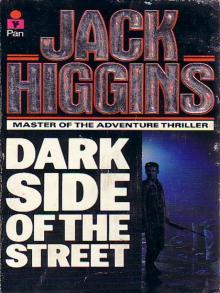 Dark Side Of The Street
Dark Side Of The Street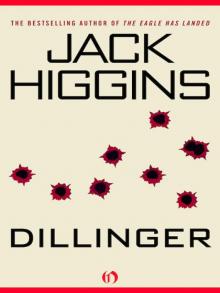 Dillinger (1983)
Dillinger (1983)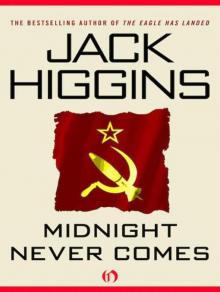 Midnight Never Comes pc-4
Midnight Never Comes pc-4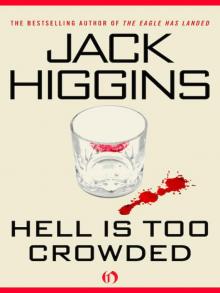 Hell Is Too Crowded (1991)
Hell Is Too Crowded (1991)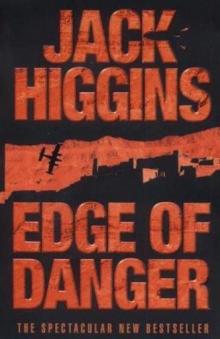 Edge of Danger sd-9
Edge of Danger sd-9 The Thousand Faces of Night (v5)
The Thousand Faces of Night (v5)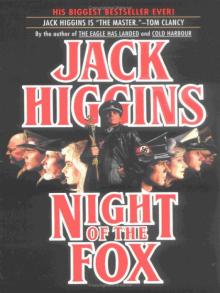 Night Of The Fox
Night Of The Fox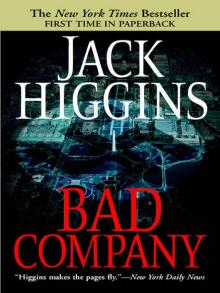 Bad Company
Bad Company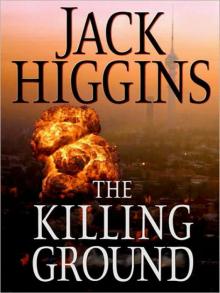 The Killing Ground
The Killing Ground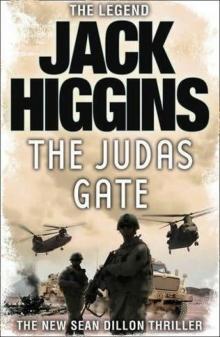 The Judas gate sd-18
The Judas gate sd-18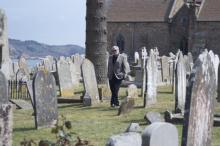 The Thousand Faces of Night (1961)
The Thousand Faces of Night (1961) Solo (Aka the Cretan Lover) (v5)
Solo (Aka the Cretan Lover) (v5)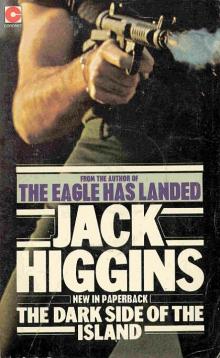 The Dark Side Of The Island
The Dark Side Of The Island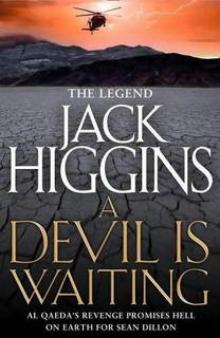 A Devil is vaiting sd-19
A Devil is vaiting sd-19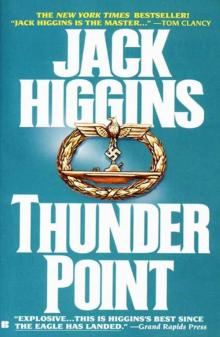 Thunder Point
Thunder Point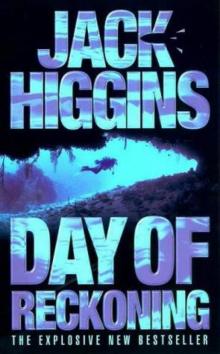 Day of Reckoning sd-8
Day of Reckoning sd-8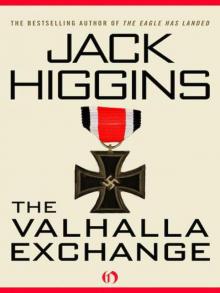 the Valhalla Exchange (v5)
the Valhalla Exchange (v5)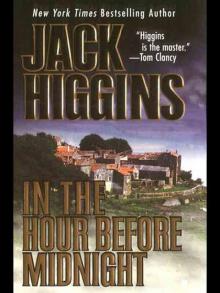 In the Hour Before Midnight
In the Hour Before Midnight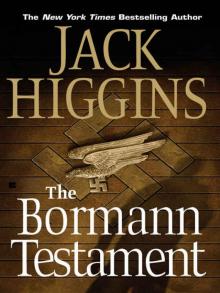 The Bormann Testament (The Testament of Caspar Schultz)
The Bormann Testament (The Testament of Caspar Schultz) The Judas Gate
The Judas Gate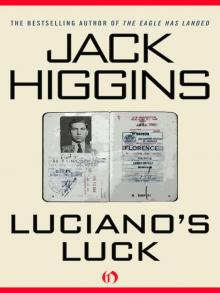 Luciano's Luck
Luciano's Luck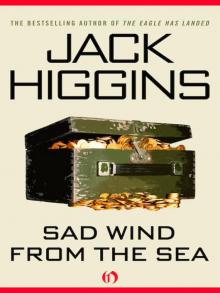 Sad Wind from the Sea (1959)
Sad Wind from the Sea (1959)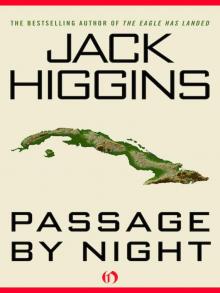 Passage by Night (1987)
Passage by Night (1987)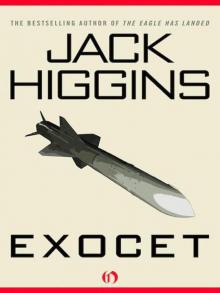 Exocet (v5)
Exocet (v5)